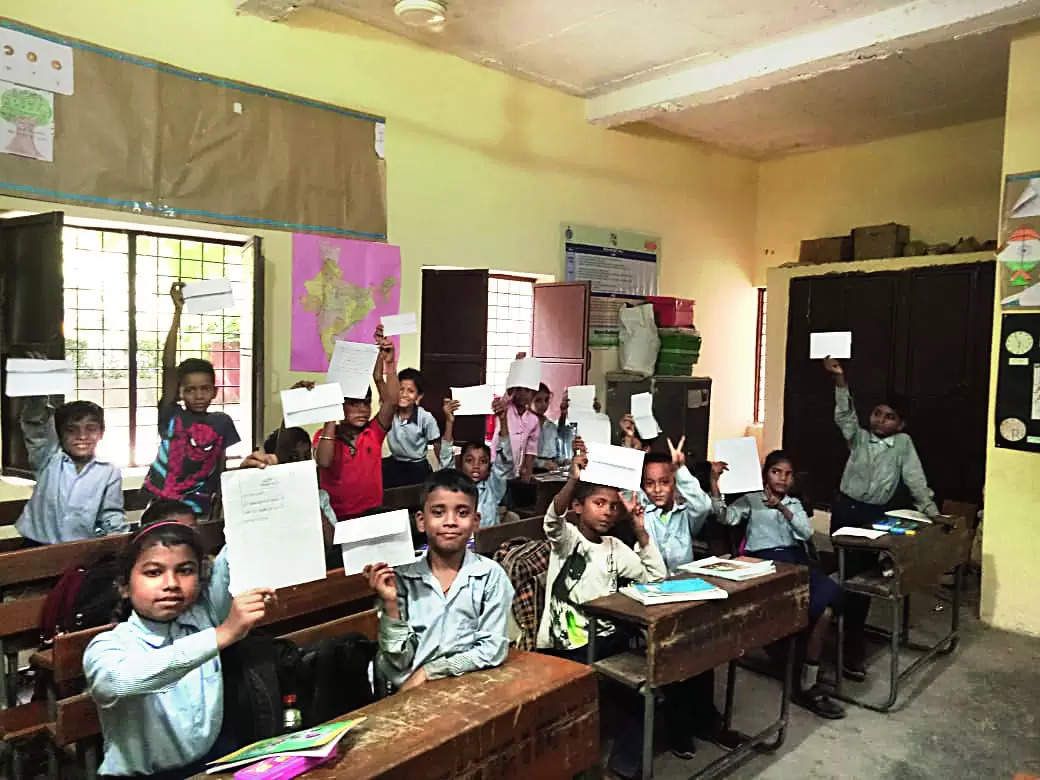[ad_1]
Under the education department’s campaign, students had to decide who to write the letter to, bought postcards and stamps from post offices, wrote letters and learnt how to post them on their own. The students have been motivated to express their feelings via letters instead of emojis, officials said. Students posted the letters last week so that they reach their loved ones before or on Rakshabandhan.
“The idea behind the programme under the Nipun Haryana Mission was to introduce the children of the digital age to the age-old tradition of writing letters to their loved ones. They neither see the postman at their doorsteps, nor have any clue about stamps and letters,” said a senior official from the elementary education department.
Around six lakh government school students studying in classes 3, 4 and 5 across Haryana took part in the campaign.
“My brother stays with me. So, I don’t need to send him a letter on Rakshabandhan. But my maternal grandparents live in Nagpur. I have written a letter to them. I haven’t seen them since the pandemic happened. I want them to come and visit me soon,” said Class 4 student Yashi.
Talking about going to the post office, she said, “My mother took me there, and I bought a stamp. It looks beautiful. The postmaster uncle told me to paste the stamp on the envelope and write the correct address with a number called the pin code. Google automatically takes our address, we never needed to write it down.”
She was awed at learning that many postmen still deliver letters on bicycles. “My naani will read my plea to come visit me in my own handwriting. But I feel sad for the postman uncle who will have to cycle all the way to Nagpur from Gurgaon.” Yashi was relieved when her mother told her that the letters are sent by train or flight, and postmen ride bicycles only in the city or village limits.
Students practised letter writing for two days before writing the final letter. They then read the letter out in front of their family to ensure everything was alright, before finally posting them.
The Haryana School Shiksha Pariyojana Parishad’s Nipun Haryana scheme has been running innovative campaigns to connect students with their families, neighbours and nature.
Earlier, elementary classes were introduced to topics like climate change and taught how they can help prevent disaster with innovative summer vacation homework. Children were given assignments such as spending time with their grandparents, keeping a count of electricity consumption and planting saplings and taking care of them.
[ad_2]
Source link


